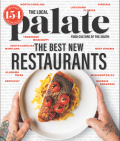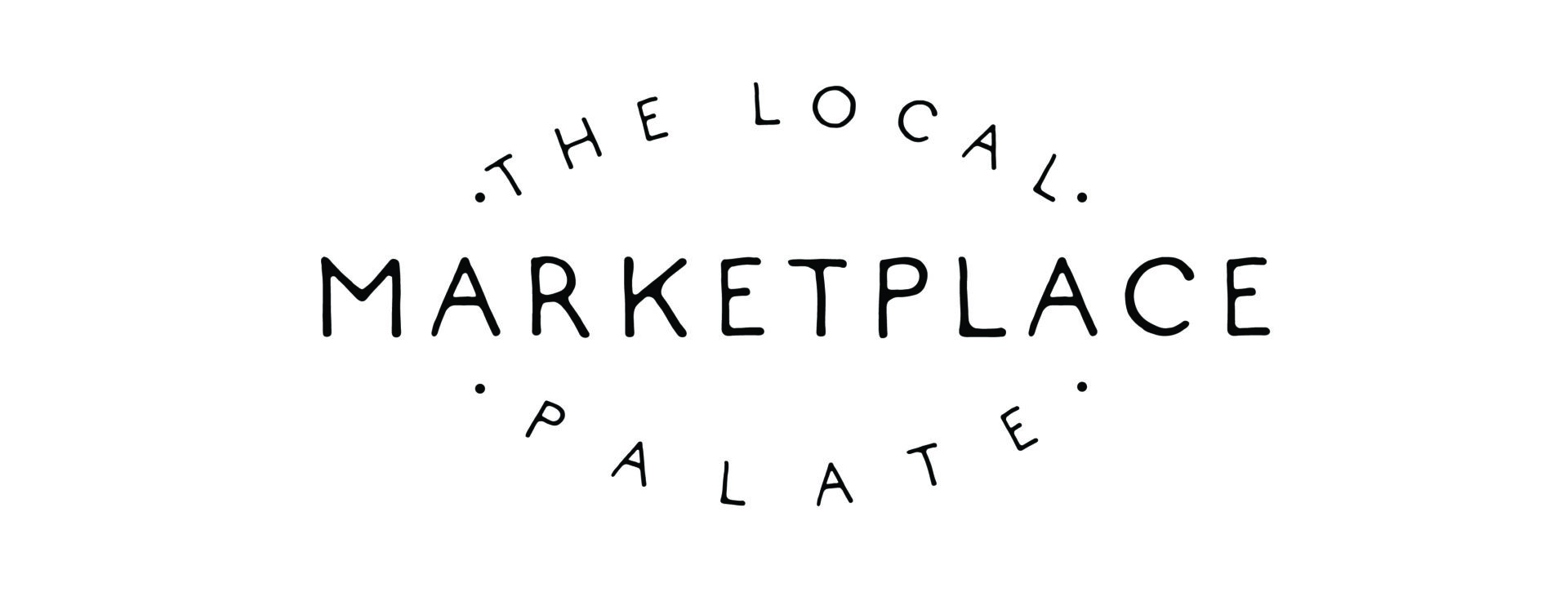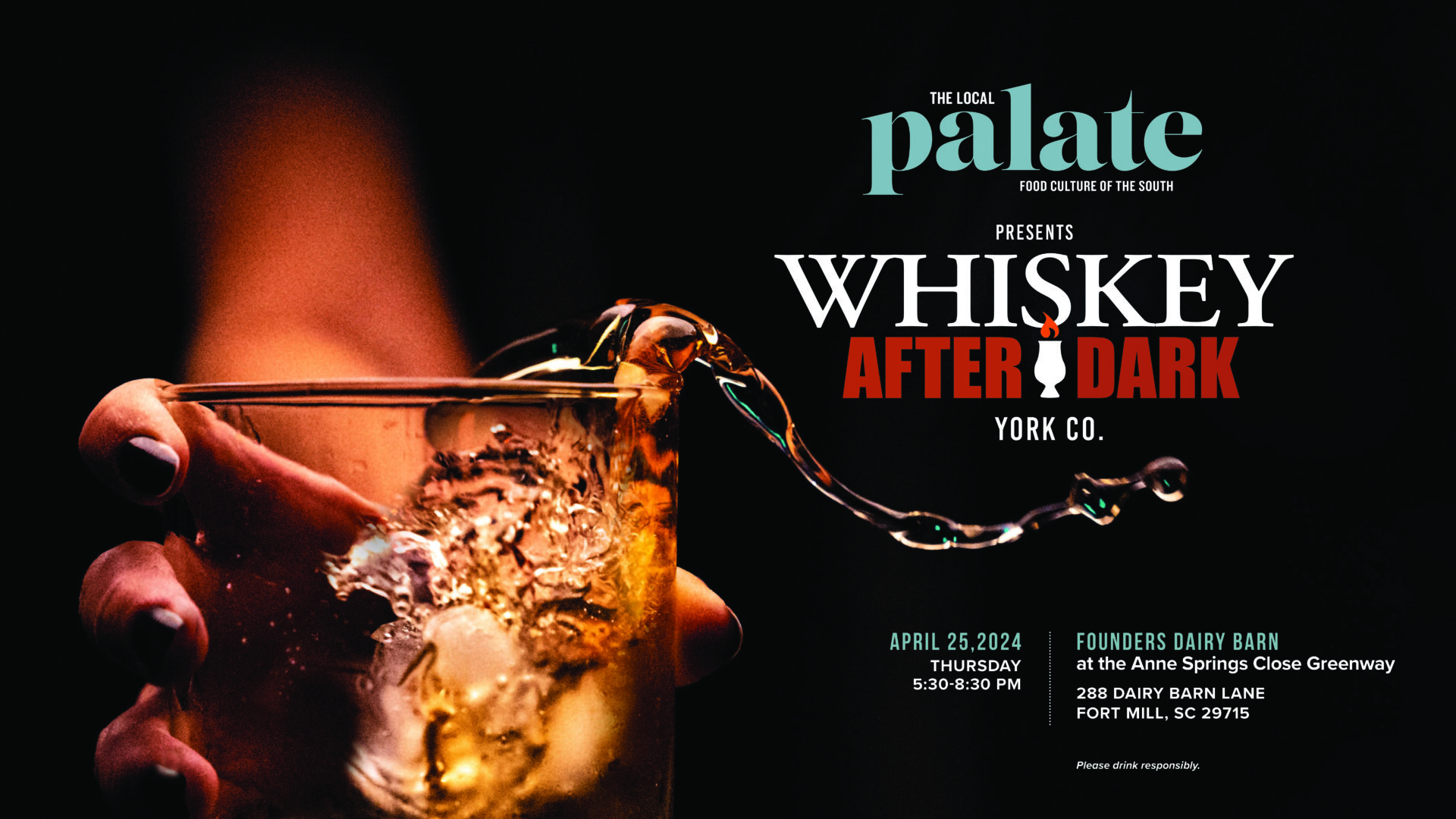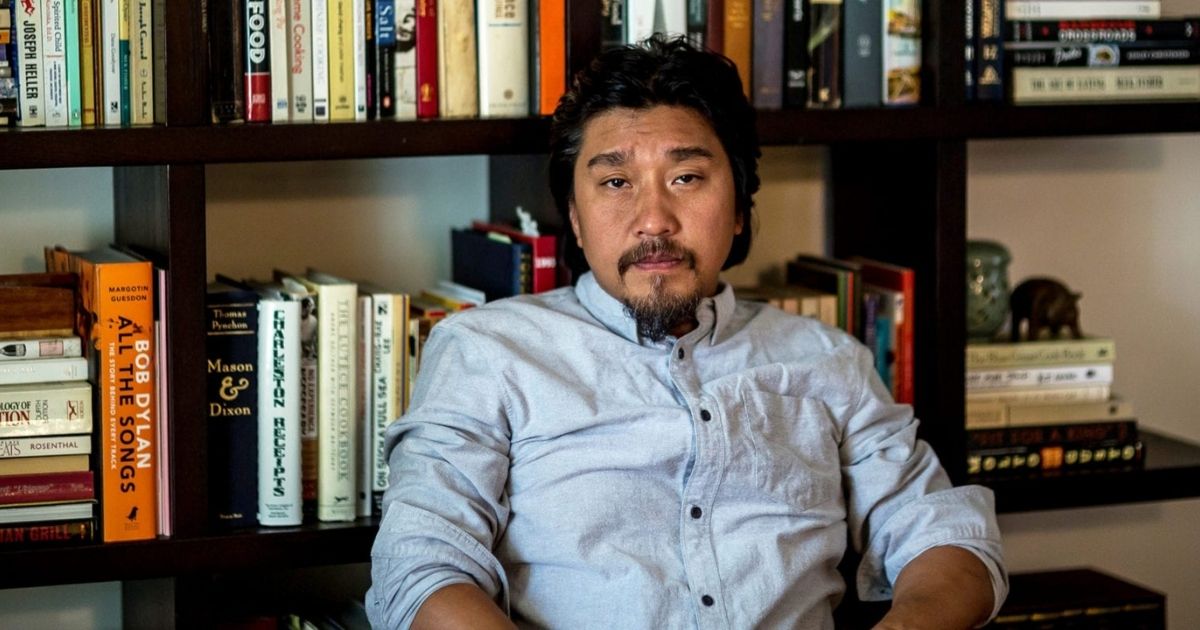Edward Lee is a man of stories. Some are his own: like the one about how a guy raised in Brooklyn by Korean parents went to NYU to study literature before finding his way to Louisville and—bypassing the culinary school route—came to make a name for himself on the Southern food scene. His food tells stories too. Lee has forged a culinary identity through his exploration of the crossroads between Southern and Korean food traditions, a journey he documents in his first book, Smoke and Pickles. Now, he’s working on a second, out next year from Artisan; he describes it as a collection of essays, with recipes. Never one to slow down, he’s also recently expanded his restaurant repertoire with the opening of Succotash in Washington, DC. The intersection of chef and author has come naturally for Lee, who’s made a hobby of collecting books from independent shops. Here, he shares some of his favorite Southern bookstores.
Edward Lee is a man of stories. Some are his own: like the one about how a guy raised in Brooklyn by Korean parents went to NYU to study literature before finding his way to Louisville and—bypassing the culinary school route—came to make a name for himself on the Southern food scene. His food tells stories too. Lee has forged a culinary identity through his exploration of the crossroads between Southern and Korean food traditions, a journey he documents in his first book, Smoke and Pickles. Now, he’s working on a second, out next year from Artisan; he describes it as a collection of essays, with recipes. Never one to slow down, he’s also recently expanded his restaurant repertoire with the opening of Succotash in Washington, DC. The intersection of chef and author has come naturally for Lee, who’s made a hobby of collecting books from independent shops. Here, he shares some of his favorites.
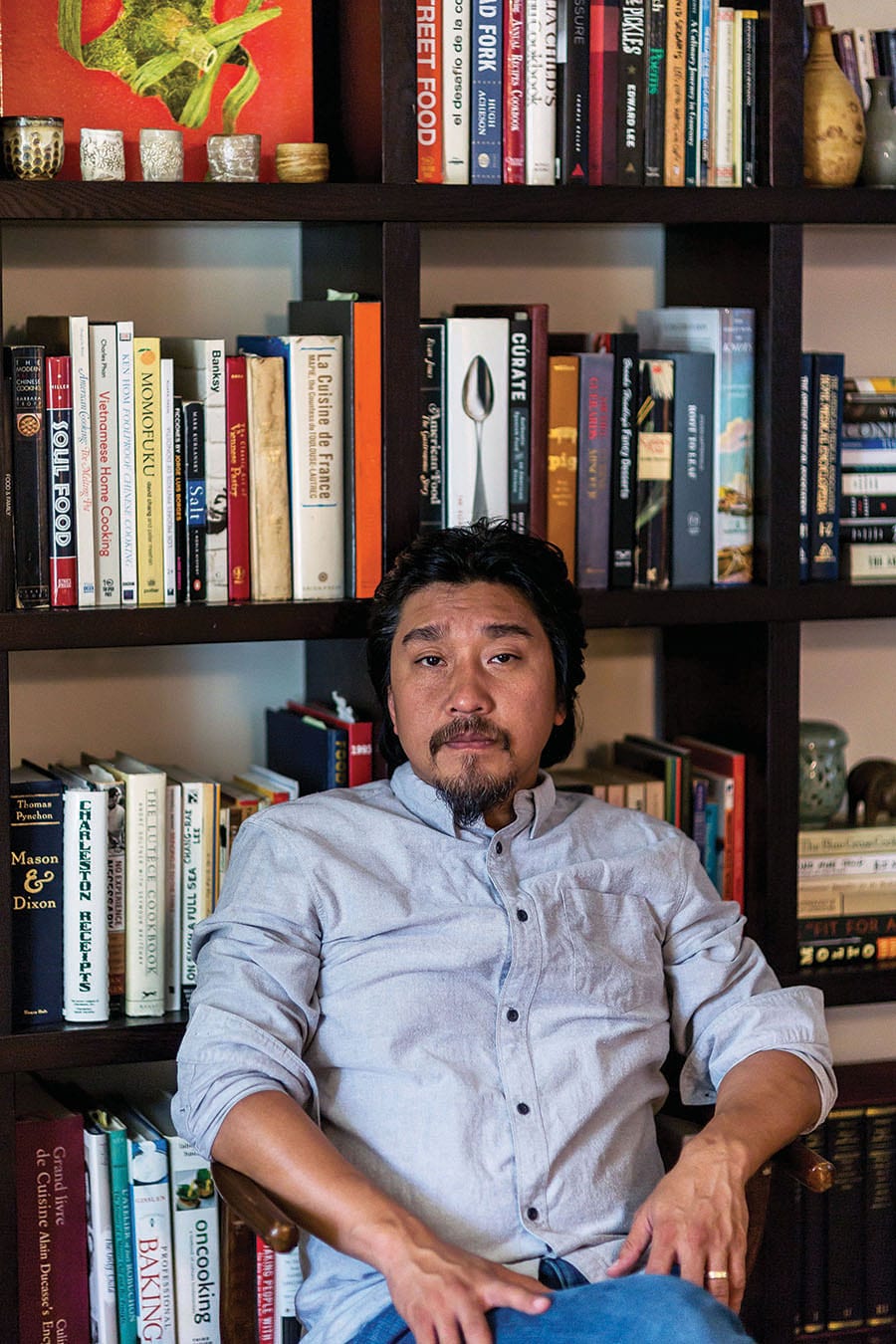
“Food is not the end-all-be-all; there are beautiful narratives that surround food as well.”
After helming two successful restaurants in Louisville, you’ve turned to DC for your latest opening. Why there?
There’s a debate about whether DC is the South or not—it’s such an international city. But it’s the northernmost city you can go to where people understand Southern food. I felt we could open up a restaurant that’s about Southern food, but still grow beyond that. I don’t cook straight Southern food, so being able to riff on it with international influence was appealing.
Where does your interest in collecting cookbooks come from?
I’ve always been a voracious reader—before I was a chef, I was a literature major in college. I never went through a formal cooking school, so a lot of my education came from cookbooks. And it wasn’t just about how to truss chicken or butcher lamb. For me, reading about food has always been as interesting as reading recipes. Part of the book I’m writing now is a return to that—food is not the end-all-be-all; there are beautiful narratives that surround food as well.
Tell us about your collection—what have you learned from it?
I collect all kinds of books, including vintage cookbooks from the South. When you read a vintage cookbook you’re really getting a window into how the people lived at that time. I feel it informs me a lot because food always comes back around. We never bury something in the past and never revisit it; it’s always cyclical.
Any surprises?
Photography in cookbooks is a modern invention. For books written pre-1950, photography was a luxury. And earlier on there were just written recipes—you really had to read between the lines and have an understanding about food to know what the outcome was going to be.
Which books are the most important to you?
Jack Pépin’s La Technique was basically my cooking school—that’s a very important cookbook for me. I also love Charleston Receipts. We think of it as such a standard bearer for Southern cooking, but if you look through the book there are recipes for shrimp teriyaki. It just affirms that even then in its heyday, food from the South has always looked globally. It’s never been an isolated insular cooking; it’s been an infused cuisine from the get-go.
What do you love about bookstores?
You can feel the hand of the owner and the staff. I love walking out with a book I know nothing about, but I know that if the person who curated the list likes the book there’s got to be something to it. It’s about trust. It’s like my restaurant: we don’t have 4,000 items on the menu; we carefully curate what we have. And I think that’s all we want.
Lee’s Bookstore Picks
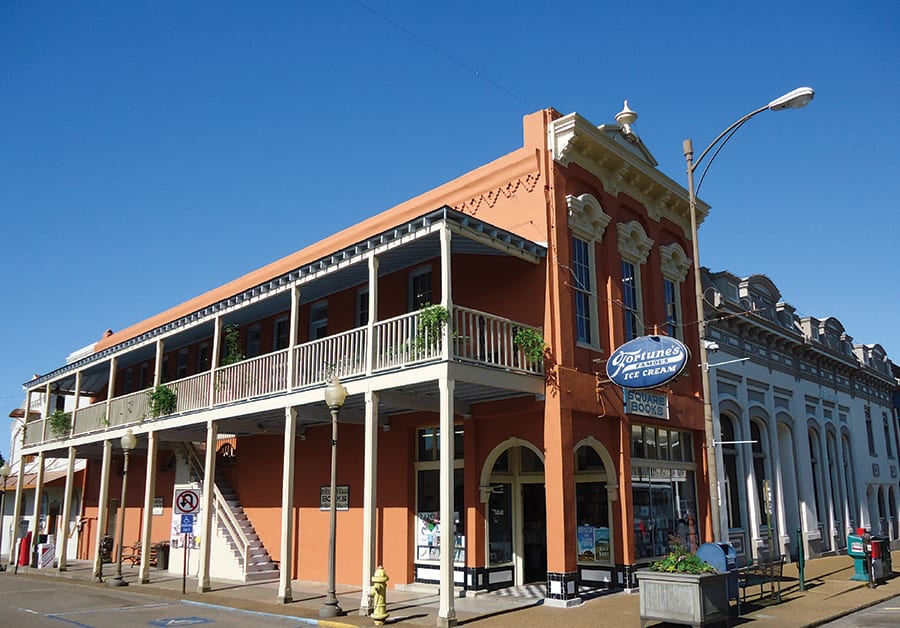
SQUARE BOOKS | Oxford, Mississippi
It only follows that the smalltown mecca of Southern literature would deliver on the bookstore front. When Lee is in town for the Southern Foodways Alliance’s fall symposium each October, he makes time for this shop on the Oxford Square. “They have a thorough cookbook selection of all the best from the South.”
FAULKNER HOUSE BOOKS| New Orleans, Louisiana
As a college student, Lee took a trip to New Orleans just to visit this French Quarter bookstore, once the home of a young William Faulkner working on his first novel, Soldier’s Pay. “If you’re as obsessed with Faulkner as I am, you’ll be in heaven here.”
BURKE’S BOOK STORE | Memphis, Tennessee
This 142-year-old Memphis institution is Lee’s go-to for vintage cookbooks (and he’s scored some rare Charles Bukowski poems here). “It’s a serious, no-nonsense place,” he says. “It has one of the attributes of a great bookstore—it compels you to read something you never thought you would be interested in.”
2ND EDITION BOOKSELLERS| Durham, North Carolina
Lee stumbled upon this used bookstore inside Raleigh-Durham International Airport during a flight delay. “I usually hate airport bookstores because you’re limited to bestsellers, self-help books, and romance novels, but here you can find real gems,” he says. “It’s so easy to get lost here I almost missed my flight.”
CHOP SUEY BOOKS | Richmond, Virginia
This used bookstore started in a building that previously housed a Chinese restaurant, hence the name. “For some reason, I’m always a bit hungover when I’m in Richmond—I blame [chef ] Jason Alley for that—and always wander into Chop Suey Books with a foggy head, thinking I’m going to get Chinese food and end up reading some poetry,” Lee says.
CARMICHAEL’S BOOKSTORE | Louisville, Kentucky
Lee calls this “the last of the great independent bookstores in Louisville” and counts himself among its loyal fan base. (His daughter is partial to Carmichael’s Kids, a sister store down the street that carries children’s books.)
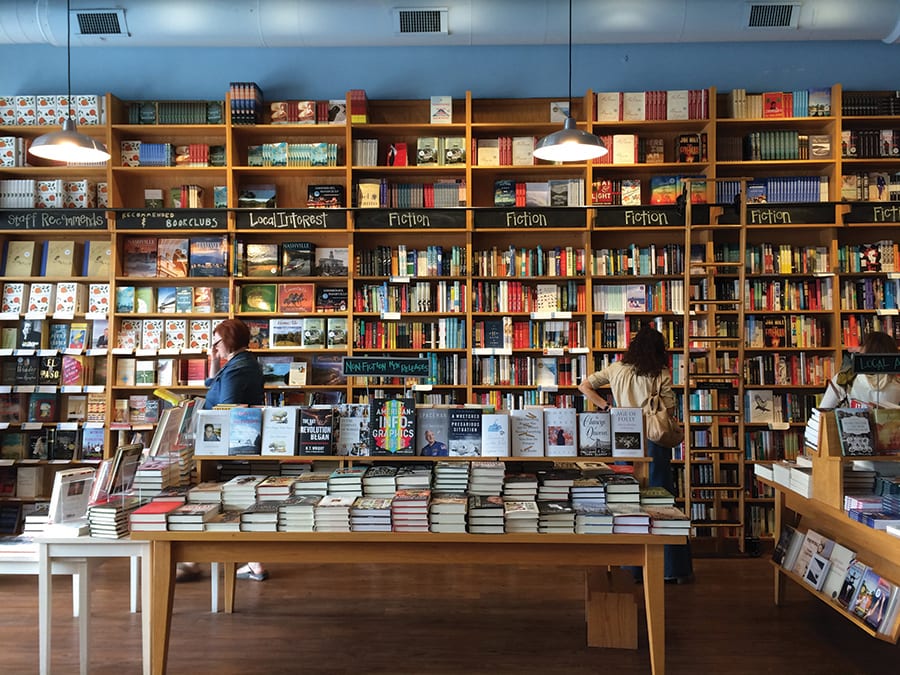
PARNASSUS BOOKS | Nashville, Tennessee
Lee loves this shop not only because he’s a fan of co-owner Ann Patchett’s writing, “but because it gives me hope for humanity,” he says. “Imagine a big bookstore that has leather chairs for lounging, beautiful blond wood shelves, and helpful, enthusiastic staff. There are always people buying books and getting excited about reading. It makes my heart expand every time I see them doing things right.”
TURNROW BOOK CO. | Greenwood, Mississippi
From its towering ceiling covered in vintage tin tile to its stellar selection of Southern mystery novels, this bookstore in the heart of the Mississippi Delta has personality in droves, Lee says. “I love sitting on the couches and talking to [owners] Jamie and Kelly about their love of books.”
A CAPPELLA BOOKS | Atlanta, Georgia
When Lee learned that the Bitter Southerner editor Chuck Reece raves about this bookstore, he knew he was going to like it. He describes A Cappella as vibrant, relevant, and constantly humming with people—“it actually feels like there’s hope for bookstores.”
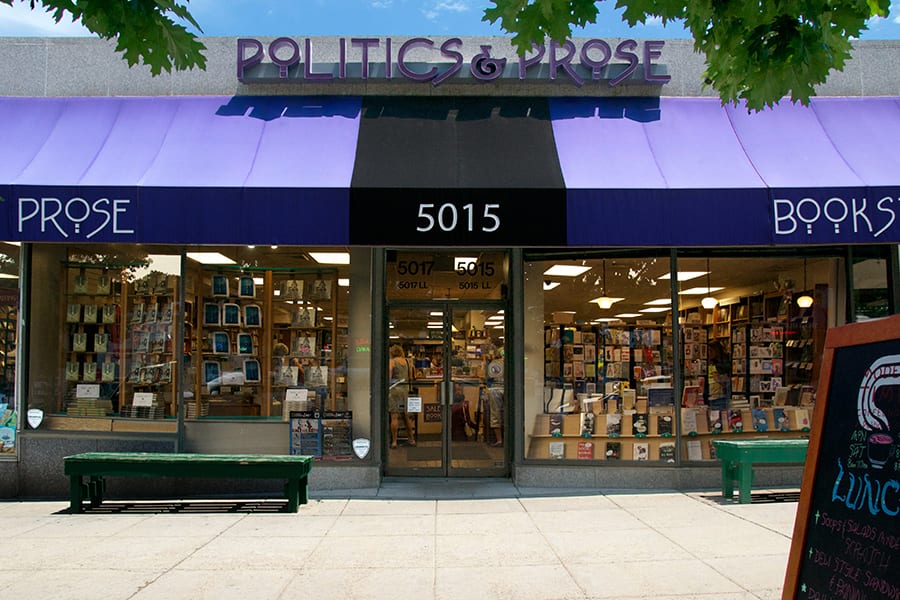
POLITICS AND PROSE | Washington, DC
“This shop has a great section of poetry and philosophy for when you’re tired of reading the latest Grisham novel,” Lee says. He was once told he had just missed Barack Obama by fifteen minutes. “That’s pretty cool—but I get the feeling they say that to everyone who comes in.”
CHURCH STREET COFFEE AND BOOKS | Birmingham, Alabama
Lee’s crazy about the coffee and chocolate chip cookies here. “It’s a small bookstore, but I love the coziness. We need more bookstores like this—that don’t feel they have to carry 5,000 titles to be successful,” he says. “And then there are those damn good cookies.”
share
trending content
-
9 Noteworthy Tennessee Restaurants
by Margaret Littman -
Outdoor Adventure and Historic Charm Awaits in St. Martin Parish
by TLP's Partners -
6 Things to Do Beyond Golf in Pinehurst
by TLP's Partners -
Charlottesville, Virginia Named Wine Region of the Year
-
A New Home for Lazy Betty
by Lia Picard
More From Bookshelf
-
A Juneteenth for the Twenty-First Century
-
Bookshelf: Fix Me A Plate
-
Eight New Cookbooks to Kick Off Summer
-
Flavor and Funk from Turkey and the Wolf
